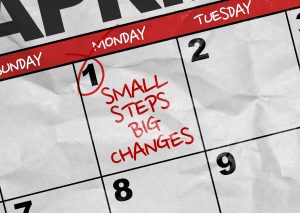All too often the question of how much longer should the modified work continue, comes to my attention. The answer of course is, it depends.
For the most part, modified work should be between 4-8 weeks long. It should be progressive, suitable and productive. That’s a lot to consider when deciding how and when to accommodate, never mind how long it should be.
Make sure the modified work you assign to an injured worker is within their department and in their own job. Begin there and your success at a full return to work has a great start.

Make sure it transitions back to regular duties by not allowing the duties to remain the same over the 4-8 weeks. When you don’t allow transition to occur, the progress of the modified work plan is doomed from the start.
Plenty of times I see the modified work duties being offered never changes in between follow ups and then we wonder why it takes so long to return to regular duties.

Have a staged or transitional approach to the duties by adding new tasks every week so that eventually, at the 8 week mark, the return to regular duty occurs.
If you find at week 4 that there is a slow down or stagnation in the progress of the plan, and the functional information doesn’t seem to change, follow up with the health care practitioner involved. Make sure you have a valid consent to speak to the practitioner, but do make the call. A quick phone call can make all the difference in whether the plan ends in an appropriate time frame or having it continue well beyond 8 weeks.
If you haven’t observed the job being performed, take the time to see the employee work, and provide some health teaching and proper body mechanics to ensure an aggravation of the injury doesn’t occur.

On many occasions, the employee can re-injure themselves but with some pertinent teachings, you can avoid a delay in the plan by avoiding aggravations or a completely new injury. Compounding injuries will definitely delay a full recovery in a timely manner.
There are special circumstances that a longer modified work plan is appropriate for, but this should be a more rare occasion rather than regularly occurring. These cases should involve complex diagnoses, surgery or pre-existing medical complicating the recovery duration.
Other reasons for a stalled modified return to work plan could include workplace issues such as poor relations with other workers and/or management, lack of equipment and/or processes.

The list is endless for the reasons why the modified return to work plan is longer than it should be. If the plan isn’t progressing, have a frank discussion with the employee and his/her supervisor to determine the barriers to full recovery. Fix those issues and you will see the plan move forward as needed.

Lucie M.H. Fournier RN, COHN(C), BA (Psych)
Founder/Workplace Health Strategist
With over 30 years of experience in disability management, and a return on investment on average of 1:7, Fournier disAbility & Health provides customized and results oriented services in Absenteeism Management including Attendance, Sick Time/Short, Long Term Disability, and WSIB claims for employers across Ontario.
Expertise in 5 distinct niches of disAbility management include:
1. Complex claims management resolution
2. Mental health claim return to work & accommodations
3. Advanced level training for internal claims manager to make a significant impact on the health of the employee and wealth of the organization
4. Transitional Leadership when moving to & from a 3rd party disAbility Management company
5. Sensitive claims & disAbility management of professional staff, such as HR, health team, and/or executives such as supervisors, managers, directors






Leave A Comment